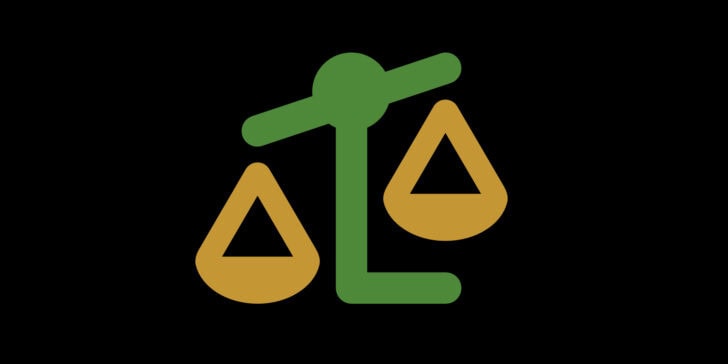In the same week, two US states have ultimately decided on different approaches to sweepstakes casino regulation.

Louisiana Governor Jeff Landry (pictured) has vetoed SB181, a bill that would have outlawed dual-currency sweepstakes platforms, arguing that existing laws are already sufficient. Meanwhile, Connecticut Governor Ned Lamont signed SB1235 into law, making it a criminal offense for unlicensed operators to offer simulated online gambling.
Senate Bill 181 in Louisiana
In Louisiana, both chambers of the legislature recently passed SB181, an amendment to state gambling law that would have made sweepstakes casinos clearly illegal, and therefore easier to prosecute. It increased the financial punishments for violations and maintained the threat of imprisonment.
However, state governors must either sign or veto any new laws that come out of the legislature, and, in this case, Louisiana Governor Jeff Landry has vetoed SB181, surprising many.
In a detailed letter sent to the Senate, he laid out his reasons for doing so, and the main thrust of his reasoning is that the laws in place are already sufficient, and he is happy with the action that the Louisiana Gaming Control Board (LGCB) is already taking. He also believes the wording of the bill was “overly broad and could be interpreted in an adverse manner which may harm or impede our current enforcement actions”.
A longer excerpt from the letter here:
“The Board is already taking active steps to combat illegal gambling in Louisiana, especially against illegal offshore wagering and illegal online sweepstakes companies operating in Louisiana…The Board, the Louisiana Attorney General’s Office, and the LSP Gaming Division are all monitoring this type of activity and will continue to issue additional cease-and-desist letters to similar illegal offshore wagering and illegal online sweepstakes companies that intentionally design their business models to circumvent Louisiana’s gaming laws and regulations.”
Governor Landry cited the example of the LGCB issuing a cease and desist order to offshore casino Bovada, and he goes on to say:
“The Board and its regulatory partners will take further action as deemed necessary to enforce state gaming laws, protect patrons and bettors, and maintain the integrity of Louisiana’s gaming industry.”
Might we see the LGCB, or even the Louisiana Attorney General, issuing cease and desists to sweepstakes casinos operating in the Pelican State in the near future? We saw the New York AG do just that recently, which resulted in the exit of many sweeps casinos from that jurisdiction, and the sending of a signal to those that have chosen to remain.
It’s also interesting to consider whether the laws currently in place in Louisiana are indeed enough to make sweepstakes casinos illegal. Evidently, Landry thinks so, but some sweepstakes platforms must disagree, as plenty still operate in the state, including RealPrize, Stake.us, and WOW Vegas.
With these issues, it’s a matter of interpretation and enforcement. The relevant core statute is perhaps Louisiana Revised Statutes Title 14 – Criminal Law §90:
“Gambling is the intentional conducting, or directly assisting in the conducting, as a business, of any game, contest, lottery, or contrivance whereby a person risks the loss of anything of value in order to realize a profit.”
So it comes down to whether sweepstakes currencies are things of ‘value’, and it’s usually argued they are not. For what it’s worth, SB181 would have clarified this with the following wording:
“Any game, contest, or promotion that is available on the internet or accessible on a mobile phone, computer terminal, or similar access device that utilizes a dual-currency system of payment allowing the player to exchange the currency for any prize or award or cash or cash equivalents, or any chance to win any prize or award or cash or cash equivalents, and simulates any form of gambling shall constitute gambling by computer and shall not be considered a legal sweepstakes.”
Senate Bill 1235 in Connecticut
It’s an interesting turn of events, with many other states currently pushing for specific anti-sweeps bills, or having already passed them. In fact, Connecticut can now count itself as the third state to pass anti-sweeps legislation this year, alongside Montana and Nevada.
Yes, Connecticut Governor Ned Lamont signed SB1235 – a wider-ranging proposal than Louisiana’s – into law earlier this week. Crucially for sweepstakes casinos, it will outlaw any unlicensed company that “facilitates participation in any real or simulated online casino gaming or sports wagering”, designating this as a class A misdemeanor.
Plenty of casinos, including McLuck, Zula, and Fliff, are still operating in the Constitution State, and we expect this bill to come into effect on October 1 – stay tuned for any relevant news on withdrawals.
So the two responses from Louisiana and Connecticut highlight the growing friction from lawmakers and politicians over how best to handle the booming social casino industry. This tumultuous year continues, with the differences in approach from each respective state becoming clearer as we go.


